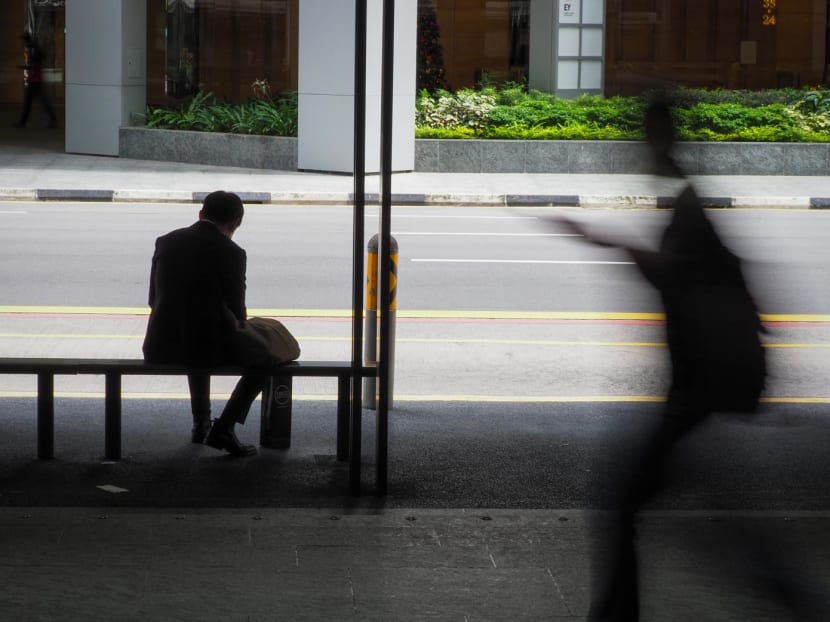Whether online or in the physical world, community is the key to youth wellness: IPS forum
SINGAPORE — Young people increasingly isolating themselves and restricting their interactions to online activities in the wake of the Covid-19 pandemic is worrying, but some experts offered the reassurance that the internet is not such a bad space and suggested new avenues for community building.


This audio is AI-generated.
- The social isolation of youth is a concern, especially after the Covid-19 pandemic when a number became accustomed to online interactions
- It can be hard to tell just how isolated young people are, given that they find solace with friends online despite being physically isolated
- However, online communities may help the young find solidarity and support, especially when struggling with their unique problems
- These points were raised by panellists at a forum focused on well-being, organised by the Institute of Policy Studies
SINGAPORE — Young people increasingly isolating themselves and restricting their interactions to online activities in the wake of the Covid-19 pandemic is worrying, but some experts offered the reassurance that the internet is not such a bad space and suggested new avenues for community building.
Speaking at a forum titled The Centrality of Well-being during the Singapore Perspectives 2024 conference on Monday (Jan 22), panellists said that young people can find comfort in online communities, especially when struggling with problems that may not be so common.
Close to 800 virtual attendees joined the event organised by the Institute of Policy Studies (IPS) that was on live stream, which featured the following panellists:
- Dr Wong Chin Yi, research fellow at IPS
- Associate Professor John Wong, a Yeo Boon Khim professor in mental health and neuroscience at the National University of Singapore (NUS)
- Professor Crystal Abidin from the School of Media, Creative Arts and Social Inquiry at the Australia-based Curtin University
- Dr Jonathan Kuek, mental health researcher and co-founder of Total Wellness Initiative SG, a prevention-oriented health and wellness social enterprise
- Mr Narasimman Tivasiha Mani, executive director at youth-focused charity Impart
FINDING REFUGE IN ONLINE SPACE
During the Covid-19 pandemic, many young people found solace online and may have gotten accustomed to being physically isolated from their communities, the panellists said.
Mr Narasimman from Impart said that he has observed some from this young segment failing to reintegrate with their physical communities after the pandemic.
Many of them have found being isolated or being with their online communities to be a “better solution” than “(facing) the world” where they might experience bullying, or face academic and parental pressure, or feel like they not belong.
“When they went into the pandemic and then were left in that zone, it seems like they have not gained the muscles to be able to move into the community,” he added.
Agreeing, Dr Kuek said that the Covid-19 pandemic and an increasingly digitalised world has affected the way in which people socialise with others.
“People tend to live their entire lives online. And when they do, they also tend to have a difficulty disconnecting from this online world, especially if they have found a genuine community.
"This is not a bad thing per se, but sometimes, the consequence of this... is feeling socially isolated when you talk about the real world.”
The panellists highlighted that social isolation may be more apparent, but the presence of strong online communities means that the young are not completely alone.
The growing presence of online communities makes it difficult to determine when someone is truly “socially isolated” as compared to being “physically isolated” — in other words, being disconnected from others within physical proximity but not necessarily being entirely alone, Dr Kuek said.
Agreeing, Assoc Prof John Wong from the Yeo Boon Khim Mind Science Centre at NUS said that young people who are physically disconnected or isolated from friends may be very well-connected with virtual friends here or outside of Singapore.
Furthermore, online communities can be especially helpful for them to find solidarity and support when struggling with problems that are particular to them.
Prof Abidin from Curtin University referred to a study where she did interviews with young people who engaged and self-identified with content on TikTok about health matters such as Tourettes (a condition of the nervous system) or attention deficit hyperactivity disorder.
Although online spaces may contain misinformation about medical conditions, Prof Abidin said that the youth interviewed felt comforted that they found conversation online about their experiences, especially when they are commonly stigmatised.
“Young people are increasingly seeking validation and attention in online communities, where they are bound by similar experiences or a very microscopic, minority facet of their identity or their demographic,” Prof Abidin said.
“There's a little bit of hope in that social media spaces can create silos or room for these people to find each other, and they then share in minoritarian spaces where the regular internet may not accommodate such conversation.”
HOW TO SUPPORT YOUTH COLLECTIVELY
The experts emphasised that boosting the mental well-being of youth should be a community effort and the community is key to helping young people who are struggling.
Referring to the 10 factors on the Singapore Youth Resilience Scale developed by the Yeo Boon Khim Mind Science Centre, Assoc Prof Wong highlighted that the level and extent of social support given to the young are key to determining their ability to navigate life's stresses.
Some of the 10 factors that are tied to youth resilience include emotional regulation, personal control and confidence, social support, spirituality or faith, and humour.
Of the 10 factors, Assoc Prof Wong emphasised that social support, along with other core areas such as emotional regulation and a sense of personal control should be the focus of programmes developed for youth to best mitigate symptoms of mental disorders.
Dr Kuek called for the re-definition of “peer-to-peer support” in Singapore, with a focus on having peer support from people who have shared similar life experiences rather than “demographically similar positions”.
For example, building peer support networks among students who have been bullied or those who have experienced some mental condition.
Rather than basing a peer support programme on the "blanket assumption" that all young people will share similar experiences in life, receiving support from a peer with shared life experience would create "a unique bond" that creates a deeper understanding beyond what simply listening to people can achieve, Dr Kuek told TODAY.
"In a properly structured peer support programme, co-creation, co-ownership and co-leadership are key in the process... the shared and collaborative approach is a cornerstone of such an approach. Everyone is an equal through it all."
For Mr Narasimman who works with youth facing adversity, he emphasised that young people's well-being cannot be seen in isolation, but should be approached through the building of healthy communities that will support their well-being.
The young people he works with are often not engaged through their interests or valued for the assets they can bring to their communities and so lack “robust future orientation” for their well-being, he said.
“We need to look at recovery from a bigger perspective rather than simplified yardsticks. Wellness isn't just a feeling, or a couple of developmental goals or some wellness programme.
"Wellness is about being seen, heard, felt and known as a person.”










